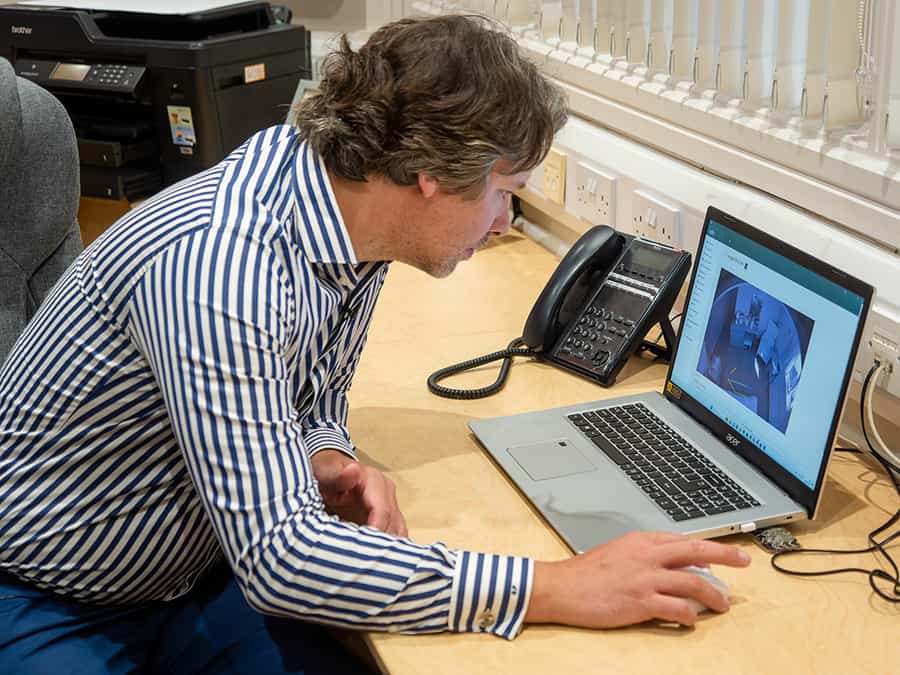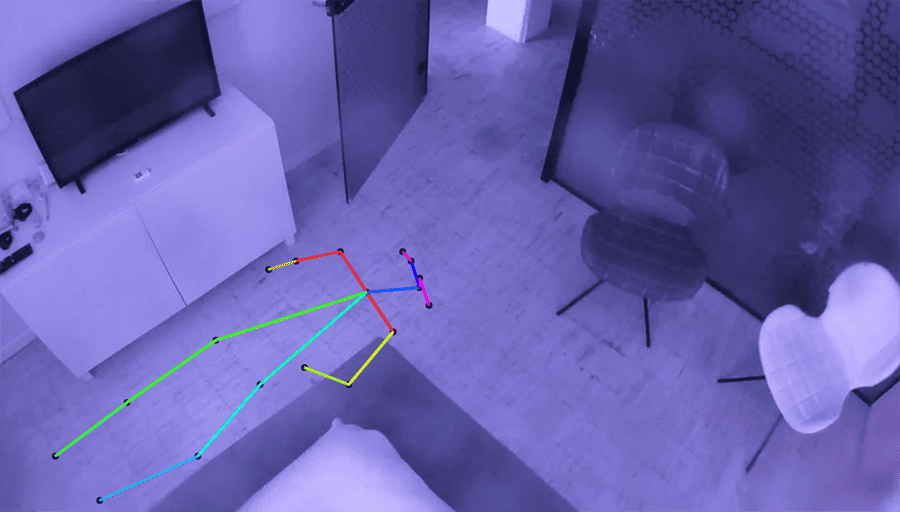Smart assistive lamps reduce falls in care home by 84 percent

An AI-powered lamp has reduced the number of falls in a care home in Cumbria by 84 percent, with a 28-fold increase in response time when a fall occurs.
The Nobi Smart Lamp, developed by Nobi, is an AI-powered piece of assistive technology that aims to revolutionise fall detection and prevention in care homes globally, including in the UK.
If a resident falls, the lamp detects this immediately and speaks to the resident, asking if they are okay.
In the event of no response or a call for help, the lamp is pre-programmed to send a message to either caregivers or family members. In the event of an emergency, the emergency services are notified with the lamp having the ability to open the door for them.
The technology has been in use since May 2023 as part of a pilot that is being funded by NHS Lancashire and South Cumbria Integrated Care Board (ICB) at the Hartland House care home in Cumbria. The lamps are already having a “significant” impact on the lives of residents and care staff.
Nobi Lamps detect 100 percent of falls and offer preventative measures that have led to a huge reduction in falls at Hartland House, according to Nobi.
Deborah Gent, the adult social care digital lead for NHS Lancashire and South Cumbria ICB, said: “We have been very happy with preliminary results from the pilot programme with Hartland House and the Nobi lamps.
“Seeing the impact that this technology could have on our elderly population, and the health service in the region, is really exciting and we look forward to working with Nobi in the future to help our elderly population.”
The NHS highlights that a fall is more likely to occur if a room is dimly lit. To respond to this, when a resident sits upright in bed at night, Nobi will shine soft light upwards to gently illuminate the room. Then if the person stands up, to go to the bathroom, for example, the smart lamp will illuminate the entire room.
Further to this, preventative alerts can be set up for frequent fallers to let care staff know when they sit up in bed. This means that carers can reach the resident before they attempt to get out of bed unaided. This way, Nobi helps care staff with a small, human intervention at the right moment to prevent falls that could have potentially huge life-threatening impacts.
Fall analysis is also incorporated into the assistive technology. Should a fall occur, the lamp sends care staff an abstract stick figure image of the resident’s position in the room and captures the 15 seconds of footage preceding and following the fall. Using this information the system can illuminate the cause of falls, empowering staff with the knowledge that they need to implement preventative strategies.

At Hartland House, 82 percent of the elderly residents were unable to use the nurse call system, highlighted Nobi. This means that if a resident falls in the night and cannot call for help they could be on the floor until care staff make their scheduled rounds to check on them. This could be anything up to two hours.
Rapid response to a fall can be life-saving. The Nobi lamp detects 100 percent of falls and alerts care staff immediately. This has led to a huge reduction in the average response time at Hartland House, according to the firm, falling from 57 minutes to under two minutes.
Speaking about the impact of falls, Nobi CEO, Roeland Pelgrims, commented: “Falls are the biggest cause of hospitalisation in the elderly so they are already a huge issue, causing a massive burden on the NHS.
“Nobi aims to revolutionise the sector by dramatically reducing falls in care homes and eliminating long lie falls completely. Agetech has a role to play in arming care staff with the information they need to make informed, proactive decisions to support their residents and keep them living well.”

